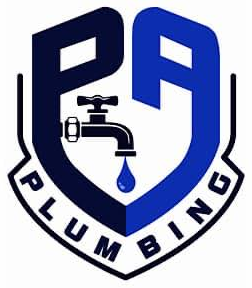FAQs
P&A Plumbing & Drain Cleaning
Have a plumbing-related question? P&A Plumbing & Drain Cleaning has the answer. Check out these FAQs and give us a call today for more information!
-
Do you do commercial and residential work?
Yes, we do commercial and residential work. If you need help with your plumbing system or clogged drains in Broomall, PA, contact us today!
-
Do you work on pipes that are outside the home?
Yes, we work on pipes outside and inside the home.
According to WebFX, the average American uses roughly 90 gallons of water a day. With this much water use, damaged pipes or struggling drains can lead to further damage in your home. If you're dealing with pipe issues or clogged drains in Broomall, PA, we're here to help.
-
What is your service area?
We generally try to stay within an hour of the zip code 19026 for most projects. If you have clogged drains in Broomall, PA or a surrounding area, our team can help.
-
Why should we choose P&A Plumbing & Drain Cleaning?
Our goal at P&A Plumbing & Drain Cleaning is to perform each job in a clean, polite, and courteous manner with attention to detail and care toward each client's property. If you're looking for a company skilled in plumbing maintenance and fixing clogged drains in Broomall, PA, we're the team for you. We provide quality skills, fair and competitive prices, excellent customer care, and 24/7 availability.
-
What should I do if I have a clogged drain?
If you're dealing with a clogged drain, try using a plunger or a drain snake to clear it. If the issue continues, it's advisable to contact a professional plumber to prevent potential damage to your pipes. A plumber can utilize specialized tools, such as hydro-jetting or a drain camera, to identify and clear the blockage effectively.
-
How do I know if I have a leak in my pipes?
Common signs of a water leak include a sudden rise in your water bill, damp patches on walls or ceilings, mold or mildew growth, and a musty odor. If you observe any of these signs, it's important to contact a plumber promptly to prevent further water damage and avoid costly repairs.
-
What causes low water pressure in my home?
Low water pressure can result from various issues, such as a clogged aerator, sediment buildup in the pipes, a malfunctioning pressure regulator, or a leak. A professional plumber can pinpoint the cause and suggest the appropriate solution.
-
How can I prevent my pipes from freezing in the winter?
To avoid frozen pipes, insulate exposed pipes in unheated areas such as attics, basements, and garages. Keep cabinet doors open to allow warm air to reach the pipes, and let faucets drip during periods of extreme cold.
-
What should I do if my water heater is not working?
Start by checking the thermostat settings and verifying that the power supply is functioning properly. If the water heater still isn't heating, the issue could be a faulty heating element, a thermostat problem, or sediment buildup. In that case, it's best to contact a plumber for an inspection and repair.
-
How can I improve the water quality in my home?
Installing a water filtration system or water softener can enhance your water quality by removing impurities, chemicals, and hard minerals. A plumber can evaluate your water and suggest the most suitable solution for your home.
-
How often should I have my plumbing inspected?
Scheduling an annual plumbing inspection is a smart way to check for leaks, corrosion, and other potential issues that could result in expensive repairs. Regular inspections can also help prolong the life of your plumbing system.
-
What are the signs that I need to replace my water heater?
If your water heater is making unusual noises, not heating water properly, leaking, or is over 10-15 years old, it might be time for a replacement. A plumber can assist you in selecting an energy-efficient model that suits your needs.
-
Why is my toilet running constantly?
A constantly running toilet is typically caused by a worn flapper, a faulty fill valve, or a problem with the flush valve assembly. A plumber can promptly resolve the issue to help prevent water waste and reduce high utility bills.
-
What are some ways to save water in my home?
You can conserve water by installing low-flow faucets, showerheads, and toilets, repairing leaks quickly, and using water-efficient appliances. A plumber can also help identify areas in your home where water usage can be reduced and recommend upgrades for improved efficiency.
serving Area
Delaware County, PA
and surrounding areas
Business Hours
24/7 Emergency Appointments Same Day Appointments






Share On: